
Bina Sengar
Learner of history and social sciences, working on history of Indigenous peoples in South Asia and United States. Areas of research interests: History of Indigenous communities, Environmental History, History of Healing and Ethics, Pre-colonial narratives in South Asia.CV: http://bamu.ac.in/dept-of-history-ancient-indian-culture/Faculty.aspx
less
Related Authors
Julian D Reynolds
Trinity College Dublin
Massimo Leone
Università degli Studi di Torino
Justin Stearns
New York University Abu Dhabi
Dominik Wujastyk
University of Alberta
Jeff Corntassel
University of Victoria
Alejandra B Osorio
Wellesley College
Dan Hicks
University of Oxford
Mirko Canevaro
University of Edinburgh
NUKHET VARLIK
Rutgers at Newark
Jana Javornik
University of East London
InterestsView All (29)

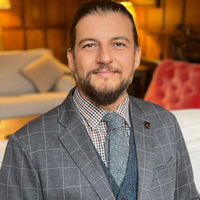
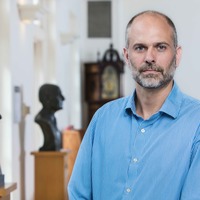
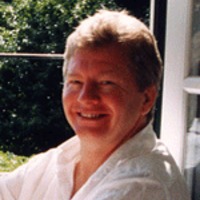
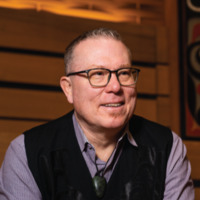

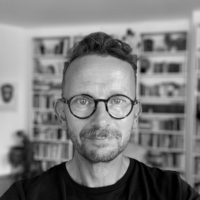
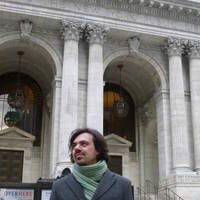


Uploads
Papers by Bina Sengar
The present study in the book chapter discusses about emerging thoughts to develop a framework for a discourse on response and resilience of Indigenous communities in postcolonial world. The study remains an empirical intervention through proposition of “TRIANGULATED MODEL” on indigenous questions in India and the United States of America (hereafter USA). The colonial legacy of India and United States of America on several common grounds conspired through the parallel policy frameworks and actions thereafter for the native or indigenous communities. What transpired shared colonial legacy in two distant colonies of British, evolved as a conglomerate of collected ideas for governance and repression. Postcolonial policies and discourse which affect global south have its equally repressive and overwhelming influence on global north as well. Indigeneity as resilient force remains the major push factor for postcolonial studies. On the contrary to it, indigenous resilience in northern nations remarkably engages itself on decolonization (Duara, 2004; Duarte and Belarde-Lewis, 2015). In the twenty-first century context, when postcolonial societies of India restructure their societies in globalized world, do they resolve to build a decolonized indigeneity? Whether the decolonial frameworks of the United States of America and India “South Asian indigeneity “constructs or deconstructs its decolonizing theoretics through indigenous rhetoric of global north? How the contesting ideas of indigeneity in two different frameworks yet, connected through terminologies, colonial legacy, settler colonialism have shown resilience in similar patterns which definitely give answers to many of the questions raised through postcolonial and decolonial constructs. The proposed chapter will discuss these questions and will glean its answers through archival, observational, and empirical interventions of theory of triangulated model of ecological cultures carried among indigenous societies of India and United States of America.
The present study in the book chapter discusses about emerging thoughts to develop a framework for a discourse on response and resilience of Indigenous communities in postcolonial world. The study remains an empirical intervention through proposition of “TRIANGULATED MODEL” on indigenous questions in India and the United States of America (hereafter USA). The colonial legacy of India and United States of America on several common grounds conspired through the parallel policy frameworks and actions thereafter for the native or indigenous communities. What transpired shared colonial legacy in two distant colonies of British, evolved as a conglomerate of collected ideas for governance and repression. Postcolonial policies and discourse which affect global south have its equally repressive and overwhelming influence on global north as well. Indigeneity as resilient force remains the major push factor for postcolonial studies. On the contrary to it, indigenous resilience in northern nations remarkably engages itself on decolonization (Duara, 2004; Duarte and Belarde-Lewis, 2015). In the twenty-first century context, when postcolonial societies of India restructure their societies in globalized world, do they resolve to build a decolonized indigeneity? Whether the decolonial frameworks of the United States of America and India “South Asian indigeneity “constructs or deconstructs its decolonizing theoretics through indigenous rhetoric of global north? How the contesting ideas of indigeneity in two different frameworks yet, connected through terminologies, colonial legacy, settler colonialism have shown resilience in similar patterns which definitely give answers to many of the questions raised through postcolonial and decolonial constructs. The proposed chapter will discuss these questions and will glean its answers through archival, observational, and empirical interventions of theory of triangulated model of ecological cultures carried among indigenous societies of India and United States of America.
HERITAGE MAPPING AND TOURISM THROUGH PERSPECTIVES OF HISTORICAL CARTOGRAPHY
Dr. Bina Sengar, Asst. Prof.
Deptt. of History and AIC,
School of Social Sciences
Dr. B.A.M. University, Aurangabad
E.mail: binasengar21@gmail.com
Dr. Deepak Chhabra, Associate Prof.
Senior Sustainability Scientist
Global Institute of Sustainability,
Arizona State University, Tempe, USA
E.mail: Deepak.Chhabra@asu.edu
ABSTRACT
When we visualize heritage in our contemporary times we often build in our image the possibility to relive the times to which the heritage visited belongs. Historical Cartography in this context certainly helps us in reliving those moments of pasts. Other than these nostalgic moments, the value of historical mapping becomes essential also to plan our heritage conservation and to enhance the utility of the past in the present times. The most essential attribute of heritage is tourism for the general people, where experts in field of history and heritage conservation contribute to its enhanced value through a very important discipline of Historical Cartography. In the presentation two different experts have come together to impart the heritage as planned in Aurangabad-India and one in Phoenix -Arizona State in USA. The possibility of exchange of knowledge from these two prime centers of heritage cities in two different part of the world will enable us to develop a vision for AHS heritage-conservation plans.
BINA SENGAR,
The research paper explores discourses about cultural understanding and availability of services to cure mental illness in the region so called as ‘Marathwada’. Further the mental illness and healing is envisaged through the interventions of indigenous healers who are engaging rural masses of the region (Wherein case studies of two villages are taken from villages of Aurangabad district). It represents an attempt to situate the issues of indigenous healing in Marathwada within a particular strand of critical discourse between two specific indigenous healing practitioners pursuing different methods of mental cure. Means of cure of these two systems encompass bridges where they complement each-other in some ways of healing and in differing situation contradict the methods of cure. The reaction of societies to their practices of healing invariably depends on the socio-political nexus of faith and mass following in comparison to the statistics available of successful healing done.
Edited by: Debidatta Aurobinda Mahapatra, Yashwant Pathak
Rowman & Littlefield, 20-Jun-2018 - Political Science - 208 pages
The book revisits Gandhi in this era of turbulence. As rigidly held notions and practices fall to pieces, and as mechanisms of violence and politicking fail, Gandhi comes to picture. If Gandhi could change the course of history, there must be elements in his thought and action, which need re-examination for the benefit of human society. This collection of essays seeks to address the question: Is it possible to generate Gandhian optimism and faith in truth and nonviolence in the contemporary world? It argues that there is a need for sustained efforts to make an in-depth study of Gandhian principles to address global problems. The book is a useful addition to the literature in political science and international relations, economics, history, sociology, conflict and peace studies, and a guide for the advocates of peaceful means of conflict resolution.